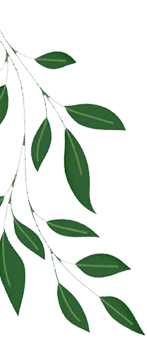Gardeners Nags Head: Cultivating Green Spaces by the Coast
Introduction to Gardening in Nags Head
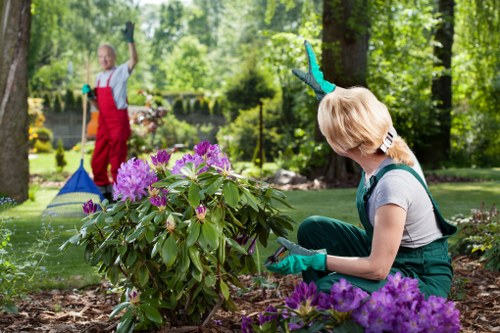
Nags Head, a picturesque coastal town in North Carolina, offers a unique environment for gardeners. With its sandy soils, salty breezes, and abundant sunlight, gardening here presents both challenges and opportunities. Whether you are a seasoned gardener or just starting, understanding the local climate and soil conditions is essential for creating a thriving garden.
The temperate climate of Nags Head allows for a variety of plants to flourish. From vibrant perennials to hardy shrubs, gardeners can enjoy a diverse array of flora. Additionally, the proximity to the Atlantic Ocean provides a serene backdrop, making gardening not just a hobby but a way to connect with nature.
In this article, we will explore the best practices for gardening in Nags Head, highlight the most suitable plants for the area, and provide tips on maintaining healthy gardens amidst the coastal environment.
Understanding the Nags Head Climate
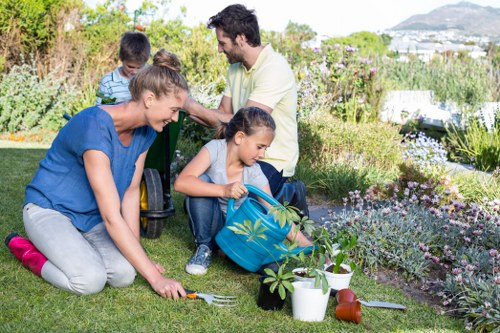
Nags Head experiences a humid subtropical climate, characterized by hot summers and mild winters. The average temperature ranges from 50°F in the winter to 85°F in the summer. This climate is conducive to growing a wide variety of plants, but gardeners must also be prepared for occasional hurricanes and storms that can impact their gardens.
Rainfall is fairly evenly distributed throughout the year, with slightly drier conditions in the summer months. Proper irrigation and drainage systems are crucial to ensure that plants receive adequate moisture without becoming waterlogged. Additionally, gardeners should consider planting wind-resistant varieties to withstand the strong coastal winds.
Understanding the local climate is the first step in creating a successful garden in Nags Head. By selecting the right plants and employing appropriate gardening techniques, you can cultivate a lush and resilient garden.
Choosing the Right Plants for Nags Head
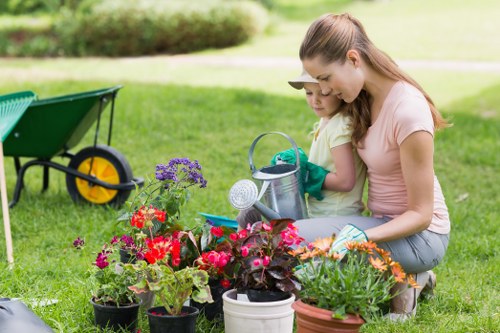
When selecting plants for your Nags Head garden, it is important to consider species that can thrive in sandy, well-drained soils and tolerate the salty air. Some excellent choices include:
- Sea Oats (Uniola paniculata): Ideal for stabilizing sand dunes and adding a natural aesthetic to gardens.
- Coreopsis: Known for their bright, daisy-like flowers and drought resistance.
- Azaleas: These flowering shrubs add vibrant color and thrive in partial shade.
- Lavender: Perfect for adding fragrance and attracting pollinators.
- Hostas: Great for shaded areas, offering lush foliage and a variety of colors.
Incorporating native plants not only ensures better adaptability but also supports local wildlife. Native plants are more likely to resist pests and diseases common to the area, reducing the need for chemical interventions.
Additionally, considering the aesthetic appeal of your garden, choose plants that provide year-round interest. Combining perennials with seasonal annuals can create a dynamic and ever-changing garden landscape.
Soil Preparation and Maintenance
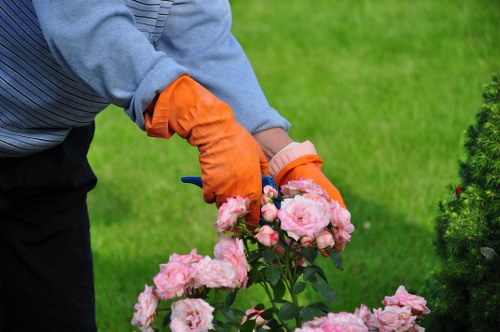
Soil quality is a critical factor in gardening success. Nags Head soils are typically sandy, which offers excellent drainage but may lack essential nutrients. To enhance soil fertility, consider the following steps:
- Soil Testing: Conduct a soil test to determine pH levels and nutrient deficiencies.
- Organic Matter: Incorporate compost or well-rotted manure to improve soil structure and nutrient content.
- Mulching: Apply mulch to retain moisture, suppress weeds, and regulate soil temperature.
- Amendments: Add necessary amendments based on soil test results, such as lime to raise pH or sulfur to lower it.
Regular maintenance, including weeding, pruning, and monitoring for pests, is essential to keep your garden healthy. Implementing sustainable practices like composting and rainwater harvesting can also contribute to a more resilient garden.
By taking the time to properly prepare and maintain your soil, you set the foundation for a thriving garden that can withstand the coastal conditions of Nags Head.
Gardening Techniques for the Coastal Environment
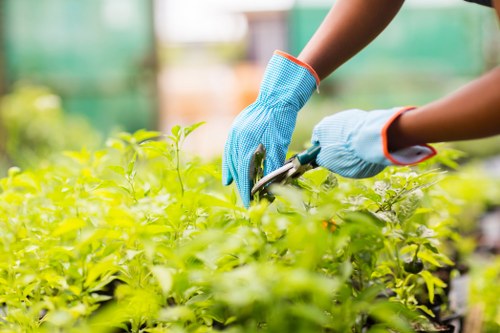
Gardening in a coastal environment like Nags Head requires specific techniques to address challenges such as wind, salt spray, and sandy soil. Here are some effective strategies:
- Windbreaks: Planting hedges or installing fences can protect your garden from strong winds.
- Raised Beds: These help manage sandy soil and improve drainage.
- Salt-Tolerant Plants: Select plants that can withstand occasional salt spray, such as certain grasses and succulents.
- Irrigation Systems: Drip irrigation systems provide consistent moisture without waterlogging the soil.
- Container Gardening: Using containers allows for better control of soil conditions and mobility in case of severe weather.
Implementing these techniques can help mitigate the challenges posed by the coastal environment, ensuring that your garden remains healthy and vibrant throughout the year.
Additionally, regular monitoring and adjusting your gardening practices based on seasonal changes can enhance the resilience of your garden.
Local Gardening Resources and Communities
Nags Head boasts a vibrant gardening community with numerous resources available to support local gardeners. From nurseries specializing in native plants to community gardens and gardening clubs, there are ample opportunities to connect and learn.
- Local Nurseries: These provide a wide range of plants suited to the Nags Head climate and offer expert advice on gardening techniques.
- Community Gardens: Joining a community garden can provide access to shared resources, knowledge, and camaraderie with fellow gardeners.
- Gardening Workshops: Various organizations offer workshops and classes on topics such as soil management, plant selection, and sustainable gardening practices.
- Online Forums: Participating in local online forums and social media groups allows gardeners to share tips, ask questions, and showcase their gardens.
Engaging with the local gardening community can enhance your gardening experience, providing valuable insights and fostering a sense of belonging.
Moreover, staying informed about local events and initiatives can offer additional support and inspiration for your gardening endeavors.
Seasonal Gardening Tips for Nags Head
Adapting your gardening practices to the changing seasons is crucial for maintaining a healthy garden in Nags Head. Here are some seasonal tips to keep in mind:
- Spring: Start planting early-blooming flowers and perennials. Prepare soil by adding compost and mulch to retain moisture.
- Summer: Focus on watering regularly, especially during dry spells. Implement shade strategies to protect sensitive plants from intense sunlight.
- Fall: Plant fall-blooming plants and prepare gardens for winter by cleaning up debris and adding protective mulch.
- Winter: Mulch extensively to protect roots from freezing temperatures. Prune perennials and shrubs as needed.
By following these seasonal guidelines, you can ensure that your garden remains productive and aesthetically pleasing year-round.
Additionally, monitoring weather forecasts and adjusting your gardening schedule accordingly can help mitigate the impact of unexpected weather changes.
Maximizing Space in Your Nags Head Garden
Many homes in Nags Head have limited outdoor space, making it important to maximize every inch of your garden. Here are some strategies to optimize space:
- Vertical Gardening: Utilize trellises, pergolas, and wall-mounted planters to grow plants upwards, saving ground space.
- Container Gardening: Use pots, hanging baskets, and other containers to plant a variety of species without needing large garden beds.
- Companion Planting: Grow compatible plants together to make efficient use of space and promote healthy growth.
- Succession Planting: Planting crops in intervals throughout the season ensures continuous harvest and optimal use of space.
- Multi-Purpose Plants: Select plants that provide multiple benefits, such as shade and fruit production, to maximize their utility.
Implementing these space-saving techniques can help create a lush and productive garden, even in smaller outdoor areas.
Additionally, thoughtful garden design can enhance both the functionality and beauty of your garden space.
Organic Gardening Practices in Nags Head
Adopting organic gardening practices is beneficial for the environment and your health. Here are some tips for organic gardening in Nags Head:
- Composting: Recycle kitchen scraps and garden waste to create nutrient-rich compost for your soil.
- Natural Pest Control: Use beneficial insects, such as ladybugs and praying mantises, to manage pest populations naturally.
- Organic Fertilizers: Opt for fertilizers derived from natural sources, such as bone meal or fish emulsion, to feed your plants.
- Crop Rotation: Rotate plant families each season to prevent soil depletion and reduce the risk of pests and diseases.
- Mulching: Apply organic mulch to retain moisture, suppress weeds, and improve soil health.
By embracing organic methods, you can cultivate a healthy and sustainable garden that supports the local ecosystem.
Furthermore, organic gardening reduces reliance on chemical inputs, promoting a safer and more enjoyable gardening experience.
Gardening Challenges and Solutions in Nags Head
While gardening in Nags Head offers many rewards, it also presents specific challenges. Understanding these issues and implementing effective solutions is key to maintaining a successful garden:
- Salt Spray: Choose salt-tolerant plants and create barriers, such as hedges, to protect sensitive species from salt exposure.
- Wind Damage: Install windbreaks and use sturdy plant supports to minimize damage from strong coastal winds.
- Sandy Soil: Improve nutrient content with organic matter and use fertilizers to compensate for poor soil fertility.
- Limited Freshwater: Implement efficient irrigation systems like drip irrigation to conserve water while ensuring plants receive adequate moisture.
- Pest Control: Monitor for common coastal pests and use integrated pest management techniques to control infestations naturally.
Addressing these challenges proactively can help you maintain a resilient and productive garden despite the coastal conditions.
Additionally, staying informed about local gardening trends and innovations can provide new strategies for overcoming these obstacles.
Local Gardening Events and Workshops
Nags Head hosts a variety of gardening events and workshops throughout the year, providing opportunities for gardeners to learn and grow. Participating in these events can enhance your gardening knowledge and connect you with the local community.
- Spring Planting Festival: An annual event celebrating the start of the gardening season with workshops, plant sales, and demonstrations.
- Composting Workshops: Learn effective composting techniques to improve soil health and reduce waste.
- Native Plant Exhibits: Discover native plant species and their benefits in maintaining a sustainable garden.
- Gardening Clubs: Join local clubs to participate in group projects, share tips, and enjoy gardening together.
- Seasonal Gardening Classes: Enroll in classes focused on specific gardening skills, such as pruning, pest management, and urban gardening.
Engaging in these events can provide valuable insights and inspiration for your gardening projects.
Additionally, networking with other gardeners at these events can lead to lasting friendships and collaborative opportunities.
Maximizing Your Garden's Potential
To fully realize the potential of your Nags Head garden, consider implementing advanced gardening techniques and continuously refining your approach. Here are some ideas to elevate your gardening experience:
- Permaculture: Integrate permaculture principles to create a self-sustaining and efficient garden ecosystem.
- Vertical Gardens: Utilize vertical spaces to grow more plants without occupying additional ground area.
- Rainwater Harvesting: Collect and utilize rainwater to reduce your dependence on external water sources.
- Companion Planting: Grow complementary plants together to enhance growth, reduce pests, and improve soil health.
- Greenhouse Gardening: Extend your growing season and protect plants from extreme weather by using a greenhouse.
By exploring and adopting these advanced techniques, you can enhance the productivity and sustainability of your garden.
Moreover, staying curious and open to new methods can lead to continuous improvement and greater satisfaction in your gardening endeavors.
Sustainability and Eco-Friendly Practices
Embracing sustainability in your gardening practices is essential for preserving the natural beauty of Nags Head. Here are some eco-friendly practices to consider:
- Composting: Reduce waste and enrich your soil by composting organic materials.
- Native Plants: Choose native species that require less water and are more resistant to local pests.
- Organic Mulch: Use organic mulches to improve soil health and conserve moisture.
- Solar Lighting: Incorporate solar-powered lights to reduce energy consumption while illuminating your garden.
- Recycled Materials: Use recycled or repurposed materials for garden structures and containers.
Implementing these sustainable practices not only benefits your garden but also contributes to the overall health of the local ecosystem.
By prioritizing eco-friendly methods, you can create a garden that is both beautiful and environmentally responsible.
Winter Gardening Tips for Nags Head
Winter in Nags Head is generally mild, which allows for continued gardening activities with some adjustments. Here are tips to maintain your garden during the colder months:
- Protecting Plants: Use frost cloths or burlap to shield sensitive plants from occasional cold snaps.
- Pruning: Trim perennials and shrubs to promote healthy growth in the spring.
- Soil Care: Continue to improve soil quality by adding compost and mulch to prepare for the next growing season.
- Indoor Gardening: Utilize indoor spaces for growing herbs and other small plants that thrive in cooler conditions.
- Planning: Use the winter months to plan your garden layout and select plants for the upcoming spring.
By taking these steps, you can ensure that your garden remains healthy and ready for revitalization in the spring.
Additionally, winter is an excellent time to reflect on the past gardening season and make improvements for future growth.
Flowers and Ornamentals for Nags Head Gardens
Enhancing your Nags Head garden with colorful flowers and ornamental plants can create a visually stunning and inviting space. Consider these options:
- Marigolds: Bright and hardy, marigolds are excellent for adding vibrant color and repelling pests.
- Daylilies: These low-maintenance perennials offer a range of colors and thrive in various soil conditions.
- Hydrangeas: With their large, showy blooms, hydrangeas can serve as focal points in your garden.
- Succulents: Ideal for container gardens, succulents require minimal maintenance and add unique textures.
- Camellias: These evergreen shrubs provide beautiful blooms in the cooler months.
Incorporating a mix of flowers and ornamentals ensures year-round beauty and interest in your garden.
Moreover, selecting plants with varying bloom times can create a continuous display of color throughout the year.
Herb Gardening in Nags Head
Growing herbs in Nags Head is both rewarding and practical. Herbs can be used in cooking, teas, and as natural remedies. Here are some popular herbs to grow:
- Basil: Perfect for summer gardens, basil thrives in warm weather and adds a fresh flavor to dishes.
- Rosemary: A hardy herb that can withstand the coastal conditions and is excellent for cooking and aromatic purposes.
- Thyme: Low-maintenance and drought-resistant, thyme is ideal for ground cover and culinary use.
- Mint: Known for its vigorous growth, mint should be contained to prevent spreading.
- Parsley: A versatile herb that grows well in both sunny and partially shaded areas.
Herb gardens can be grown in beds, raised containers, or even vertical planters, making them suitable for various garden sizes.
Additionally, herbs can attract beneficial insects, enhancing the overall health of your garden ecosystem.
Edible Gardening Options
Incorporating edible plants into your Nags Head garden allows you to enjoy fresh produce right from your backyard. Here are some suggestions:
- Tomatoes: Choose varieties suited to the local climate, such as cherry or heirloom tomatoes.
- Pepper: Both sweet and hot pepper varieties can thrive in Nags Head gardens.
- Leafy Greens: Spinach, kale, and lettuce are excellent for cooler months and partial shade areas.
- Beans: Climbing beans can be grown vertically, saving space and adding greenery.
- Strawberries: These can be grown in containers or raised beds, providing sweet treats throughout the summer.
Edible gardening not only provides sustenance but also adds diversity and function to your garden space.
Moreover, growing your own food promotes sustainability and reduces reliance on store-bought produce.
Water Features and Garden Decor
Adding water features and decorative elements can enhance the beauty and tranquility of your Nags Head garden. Consider the following:
- Ponds: A small pond can become a focal point, attracting wildlife and creating a soothing ambiance.
- Fountains: The sound of flowing water adds a calming effect and can help mask coastal noise.
- Garden Statues: Artistic statues can reflect your personal style and add character to your garden.
- Pathways: Stone or gravel pathways guide visitors through the garden and add structure.
- Lighting: Solar or LED lights illuminate your garden at night, highlighting key features and enhancing safety.
Incorporating these elements can create a more engaging and inviting garden environment.
Furthermore, water features can help create a microclimate, benefiting the plants and overall garden health.
Conclusion: Embracing the Garden Life in Nags Head
Gardening in Nags Head offers a unique blend of challenges and rewards. By understanding the local climate, selecting appropriate plants, and employing effective gardening techniques, you can create a flourishing garden that complements the stunning coastal landscape.
Engaging with the local gardening community and utilizing available resources can further enhance your gardening experience, providing support and inspiration along the way.
Whether you are cultivating a small herb garden or an expansive floral paradise, the beauty and tranquility of Nags Head provide the perfect backdrop for your gardening endeavors.
Embrace the garden life in Nags Head, and enjoy the myriad benefits of nurturing a green and vibrant outdoor space.
Frequently Asked Questions
- What are the best plants for sandy soil in Nags Head?
Plants like Sea Oats, Coreopsis, Azaleas, Lavender, and Hostas are well-suited for sandy soils, offering resilience and vibrant growth.
- How can I protect my garden from strong coastal winds?
Implement windbreaks such as hedges or fences, and use sturdy supports for taller plants to minimize wind damage.
- What is the ideal watering schedule for gardens in Nags Head?
Water your garden early in the morning to reduce evaporation and ensure deep watering. Drip irrigation systems can provide consistent moisture without waterlogging.
- Are there any native plants I should consider for my Nags Head garden?
Yes, native plants like Sea Oats, Coreopsis, and local grasses are excellent choices as they are adapted to the local climate and soil conditions.
- Where can I find gardening resources and communities in Nags Head?
Local nurseries, community gardens, gardening clubs, and online forums are great places to find resources and connect with fellow gardeners in Nags Head.
